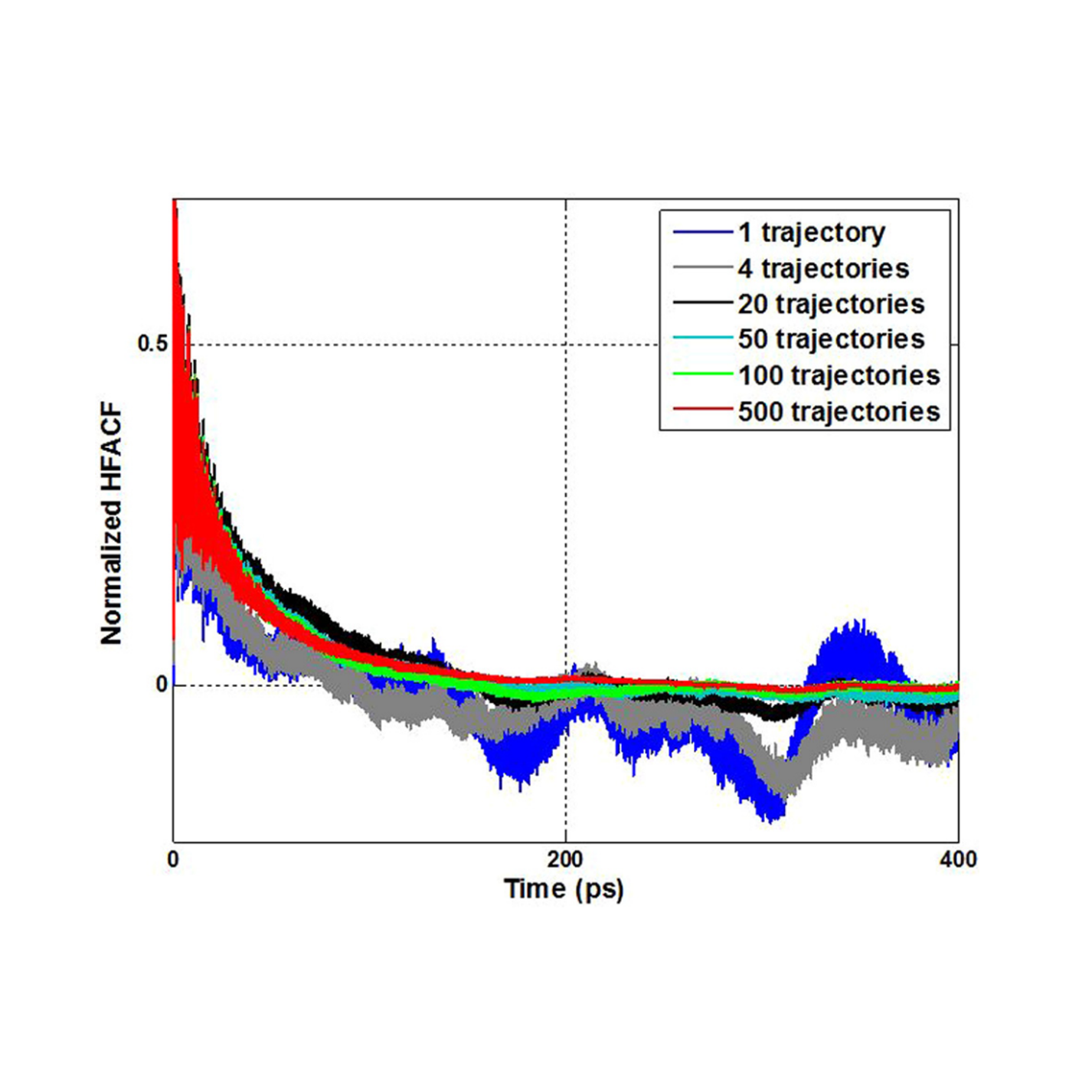Ensemble averaging vs. time averaging in molecular dynamics simulations of thermal conductivity


Abstract

In this report, we compare time averaging and ensemble averaging as two different methods for phase space sampling in molecular dynamics (MD) calculations of thermal conductivity. For the comparison, we calculate thermal conductivities of solid argon and silicon structures, using equilibrium MD. We introduce two different schemes for the ensemble averaging approach and show that both can reduce the total simulation time as compared to time averaging. It is also found that velocity rescaling is an efficient mechanism for phase space exploration. Although our methodology is tested using classical MD, the approaches used for generating independent trajectories may find their greatest utility in computationally expensive simulations such as first principles MD. For such simulations, where each time step is costly, time averaging can require long simulation times because each time step must be evaluated sequentially and therefore phase space averaging is achieved through sequential operations. On the other hand, with ensemble averaging, phase space sampling can be achieved through parallel operations, since each trajectory is independent. For this reason, particularly when using massively parallel architectures, ensemble averaging can result in much shorter simulation times (∼100–200X), but exhibits similar overall computational effort.
